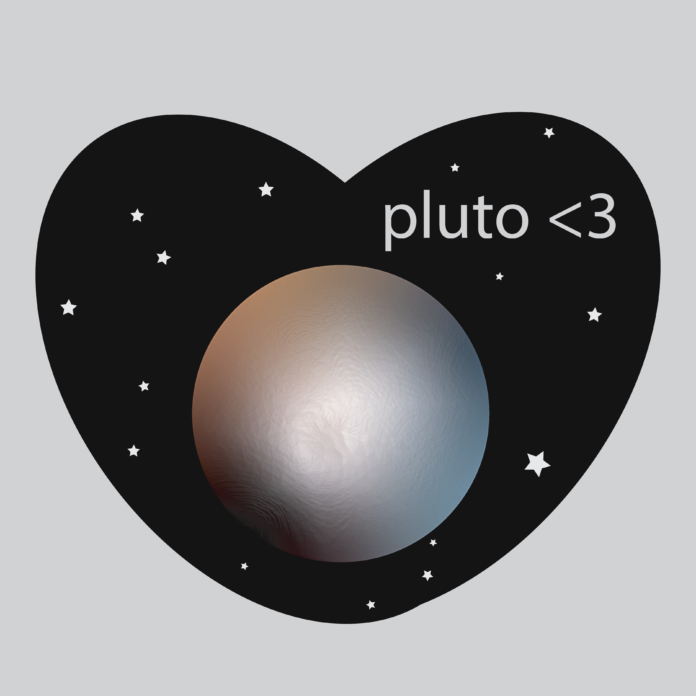Pluto has been at the heart of years of astronomical debate
By EMILIE BROWN — emrbrown@ucdavis.edu
Feb. 18 will mark the 93rd anniversary of the discovery of Pluto (the dwarf planet, not the cartoon dog). There’s no denying that the little planet holds a special place in many people’s hearts. To understand why we are so attached to a tiny rock on the outer edges of our solar system, we have to go back to the beginning.
In the early 1900s, astronomers noticed that Neptune had a slight wobble in its orbit and thought that there may be a ninth planet causing it. After years of unsuccessful searching, Clyde Tombaugh discovered the mysterious object we call Pluto in 1930. From that day on, Pluto’s classification as a planet became a highly-debated topic within astronomy.
In 2006, Pluto was officially reclassified as a dwarf planet for two main reasons: it had not cleared all the objects in its region, and it was much smaller than other planets. As astronomers made more discoveries following 1930, it became clear that there were many more Pluto-sized objects in our solar system. The International Astronomical Union (IAU) officially recognizes five dwarf planets but estimates that there could be thousands of others waiting to be discovered. Despite this, Pluto continues to stand out.
Following Pluto’s reclassification, the public demanded that it be reinstated as our ninth planet. Famous astronomers received angry letters; people gathered at the IAU’s headquarters and started petitions. Debates about Pluto continue to this day. But why do so many people care about this dwarf planet?
People have a tendency to root for the underdog, and Pluto is absolutely an underdog. Pluto is far smaller than any of the planets, and it’s even smaller than some planets’ moons (only three-fourths the size of ours). In a row of gas giants and massive rocky planets, Pluto seems out of place, and many people say they empathize with it.
Others say they love Pluto because everyone does. We all have opinions about its planetary status; we immortalize it in pop culture, we hold festivals in its honor, we created a national holiday for it. No other object in our solar system gets that kind of attention. So many people care about this little icy rock, and that inspires many others to take an interest in astronomy. Pluto is the farthest well-known object from our sun, and it represents all that is left to be discovered at the edge of the solar system.
While Pluto isn’t necessarily unique scientifically, the fact that so many people are so attached to it makes it a tool to get more people interested in our solar system and all the mysteries left to discover within it. Pluto is a symbol of the unexplored, the distant, the mysterious.
While you may have your own views regarding Pluto’s planetary status, there is no denying that we have an unbelievable connection to an icy rock 3.3 billion miles away.
Written by: Emilie Brown — emrbrown@ucdavis.edu
Disclaimer: The views and opinions expressed by individual columnists belong to the columnists alone and do not necessarily indicate the views and opinions held by The California Aggie.






